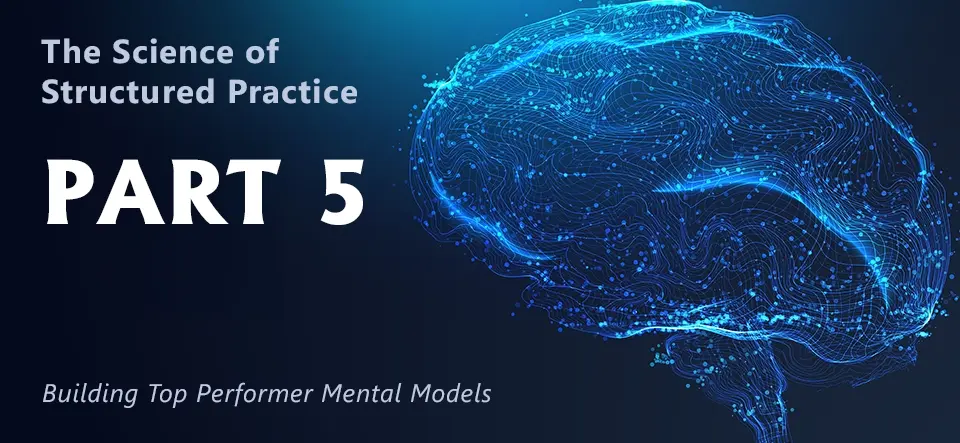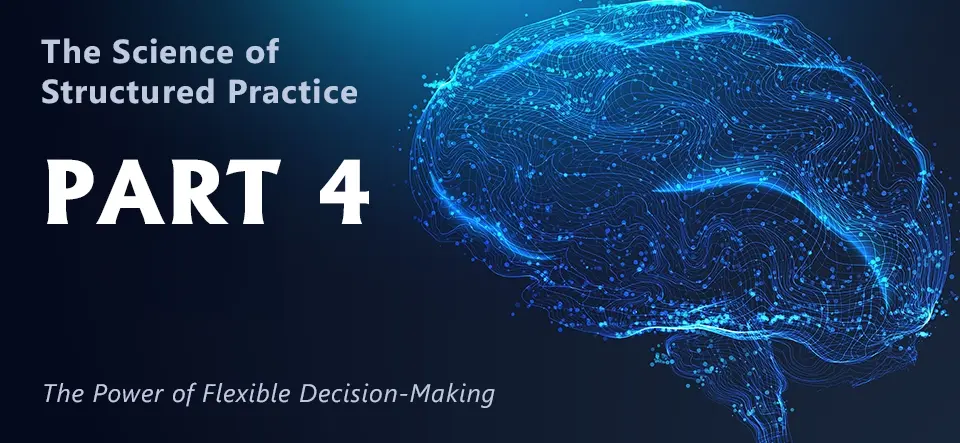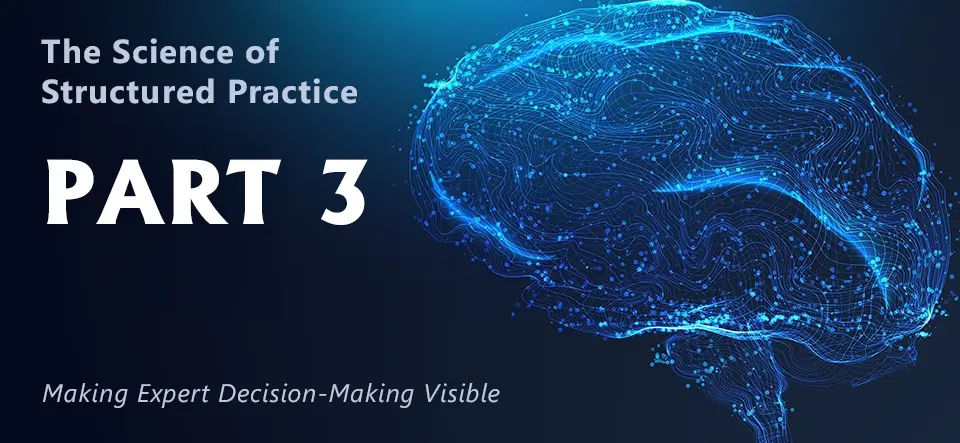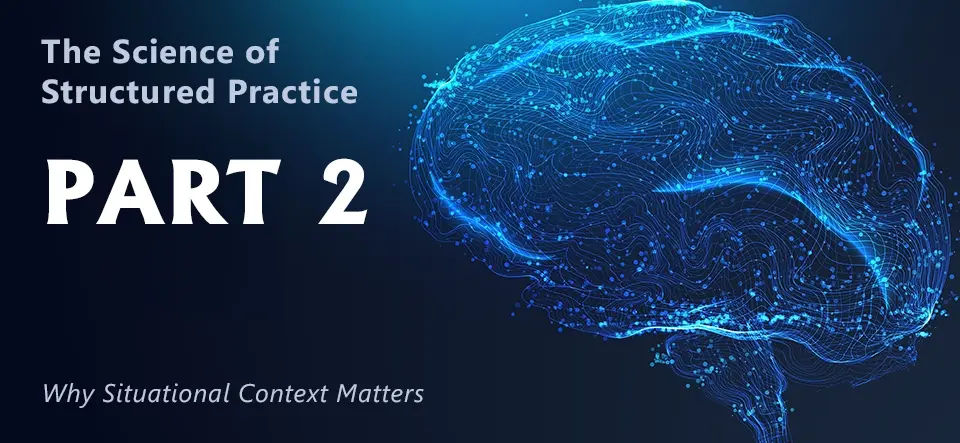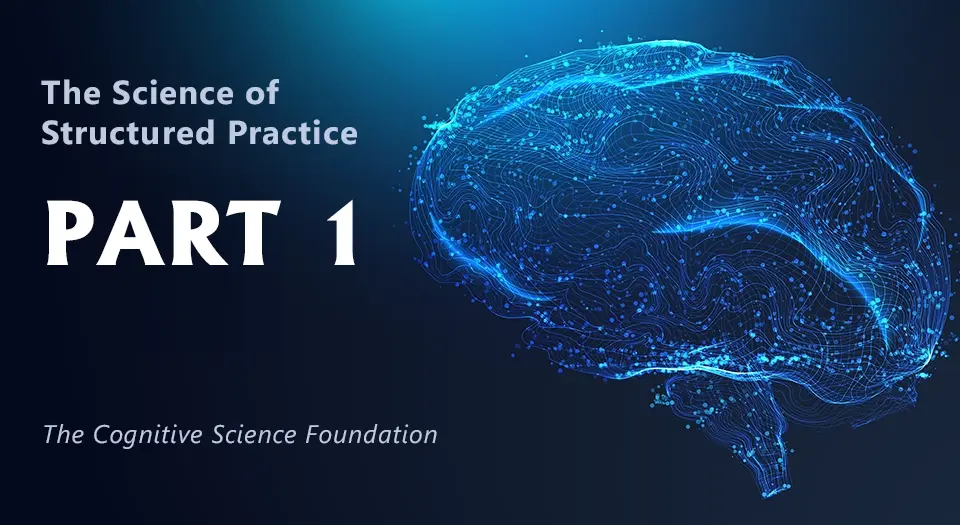Have you ever wondered why top performers consistently make better decisions even in new situations? The secret lies in their mental models - the sophisticated frameworks they use to understand situations and choose optimal approaches. These aren't just simple decision trees or memorized processes. They're rich, dynamic ways of seeing the world that transform how they recognize patterns and make decisions.
The Science of Structured Practice, Part 5: Building Top Performer Mental Models
By Douglas Seifert, PhD on Dec 6, 2024 9:54:20 PM
The Science of Structured Practice, Part 4: The Power of Flexible Decision-Making
By Douglas Seifert, PhD on Dec 5, 2024 12:00:51 AM
Your top performers likely excel in two critical ways: They adapt their approach based on each situation rather than using a one-size-fits-all strategy, and they confidently apply new approaches even when situations don't perfectly match their training.
Here we'll explore how cognitive flexibility principles and structured practice, delivered through immersive simulation technology, help teams develop this crucial capability by exposing them to the ways top performers adapt to different situations.
The Science of Structured Practice, Part 3: Making Expert Decision-Making Visible
By Douglas Seifert, PhD on Dec 3, 2024 11:09:33 PM
Your top performers might hold the key to transforming organizational performance: They consistently make better decisions, and sharing that success can elevate performance across teams. Why? Because their expertise isn't just knowledge - it's the ability to recognize patterns and make better decisions in fluid, real-world situations. Here we'll explore how cognitive apprenticeship principles and structured practice, delivered through immersive technology, can help you close the gap between top performers and the rest of your team.
The Science of Structured Practice, Part 2: Why Situational Context Matters
By Douglas Seifert, PhD on Dec 3, 2024 9:39:20 PM
Want to transform performance? Put people in authentic situations. But not just any situations - they must capture real organizational challenges and provide structured paths to better performance. Put a sales manager in a real coaching scenario, a physician in an actual patient case, or a leader in a true team challenge - and watch performance improve dramatically. Why?
Because authentic situations are essential for developing impactful decision-making skills.
The Science of Structured Practice, Part 1: The Cognitive Science Foundation
By Douglas Seifert, PhD on Dec 3, 2024 4:15:26 PM
Every organization has them: top performers who consistently make the right decisions in challenging situations. They make it look easy - but it's not just about what they know. It's about how they developed the skills to apply that knowledge effectively.
Here we'll explore how cognitive science reveals the way top performers develop these capabilities, and show you how structured practice, powered by immersive technology, can help you capture and scale these behaviors to elevate performance across your teams.
Why E-Learning Alone Fails to Transfer - And What to Do About It
By Douglas Seifert, PhD on Jul 30, 2019 11:06:05 AM
Are your e-learning tools - Articulate, Captivate, iSpring, Elucidat, etc. - giving you the results you want? Are your training programs transferring desired behavior changes to the workplace? If not, it’s likely not the fault of the tool. Your instructional designers may just be expecting more from a tool than it was designed for… like asking a car to fly.
This article will explore why e-learning tools alone do not deliver effective knowledge transfer. Our goal is to show how immersive virtual practice and coaching in realistic environments can facilitate successful transfer to the workplace. We’ll also demonstrate how to solve a common L&D challenge using a 3D immersive learning platform.


